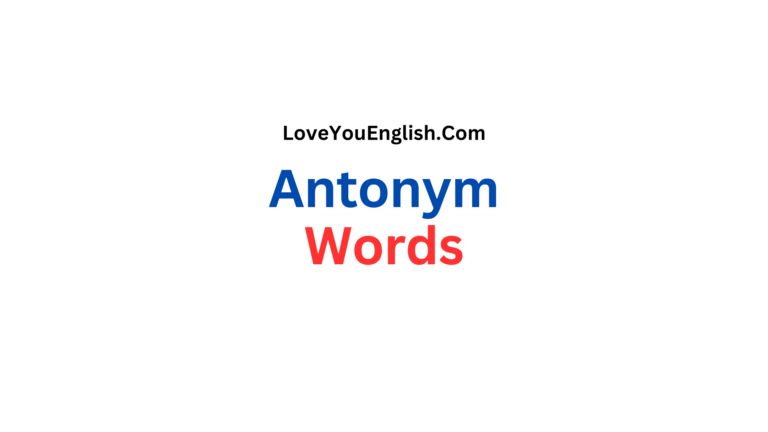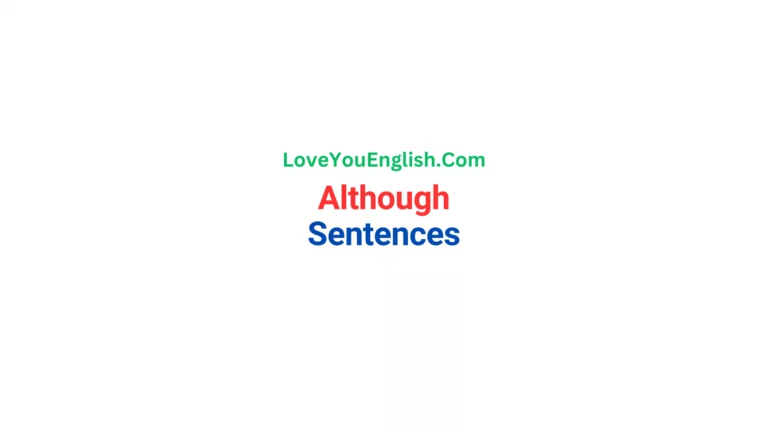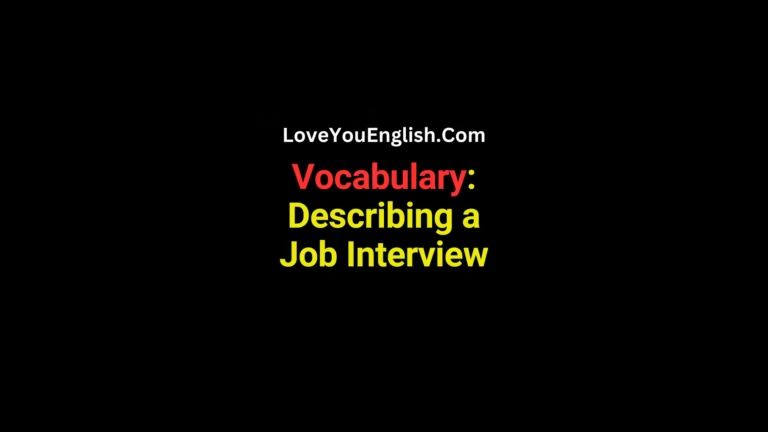Words for Describing Time: From the Past to the Future
Time plays a huge role in our everyday lives.
We’re always discussing it, thinking about it, and figuring out how to use it wisely.
We have lots of words to describe time and events, whether we’re looking back at the past, focusing on the present, or imagining the future.
Each situation calls for different words to express our thoughts.
In this post, I’ll teach you different words and phrases we use to talk about time, sorted into past, present, and future categories.
I will help you learn how to discuss time in English, making your conversations easier to understand and more accurate.
Describing the Past
When talking about the past, we often use words that refer to something that has already happened. These words help us talk about events that occurred before now.
Here are some common words and phrases for the past:
1. Yesterday
“Yesterday” refers to the day before today. It’s one of the most common words used to describe the recent past.
- Example: Yesterday, I went to the market.
2. Last week/month/year
These terms refer to the time period that ended just before today.
- Example: I saw him last week at the party.
3. Ago
“Ago” is used to show how much time has passed since an event happened. It is often used with a time expression.
- Example: I moved to this city two years ago.
4. In the past
“In the past” refers to a general time period that is not specific.
5. Previously
“Previously” means before a certain point in time, usually referring to something that happened earlier in the past.
- Example: I had previously visited this place when I was a child.
6. Formerly
“Formerly” is used to describe something that happened in the past, especially when it is no longer true or when a situation has changed.
- Example: She was formerly a teacher, but now she is a writer.
7. Once
“Once” means at one time or in the past.
8. Earlier
“Earlier” refers to a time that is before the present moment, often used to talk about the same day or earlier in the day.
- Example: I saw him earlier at the café.
Describing the Present
When talking about the present, we use words to describe actions or events happening now or general truths.
Here are some words commonly used to describe the present time:
1. Now
“Now” refers to the present moment, the time happening at this very moment.
2. Currently
“Currently” is used to describe something happening at the present time, often used in more formal contexts.
3. At the moment
This phrase is similar to “now” but can sound more casual.
4. Today
“Today” refers to the day we are in right now.
5. At present
“At present” is another way to say “currently.” It’s used more formally.
6. As of now
“As of now” refers to the present moment and often implies that something may change in the future.
7. These days
“These days” refers to the present time or recent times in a general sense.
- Example: People don’t use paper maps these days because of smartphones.
8. Nowadays
“Nowadays” is similar to “these days” and is used to talk about things that are common in the present.
- Example: Nowadays, everyone uses social media to stay connected.
Describing the Future
When we talk about the future, we are referring to something that has not yet happened but will happen later.
Here are some common words and phrases for the future:
1. Tomorrow
“Tomorrow” refers to the day after today.
2. Next week/month/year
These phrases refer to the time that will come immediately after the current week, month, or year.
3. In the future
“In the future” is a general term for any time that comes after the present moment.
4. Soon
“Soon” refers to a short time from now, indicating something that will happen in the near future.
- Example: I will be there soon, just finishing up some work.
5. Later
“Later” refers to a time after the present, often used when the exact time is not known.
6. Eventually
“Eventually” means that something will happen after a period of time, but it’s not clear exactly when.
- Example: Eventually, we will find the right solution.
7. In the coming days/weeks/months
This phrase is used to talk about something that will happen in the near future.
8. Sooner or later
This phrase means that something will happen at some point in the future, even if we don’t know exactly when.
- Example: Sooner or later, you’ll understand what I mean.
9. In a while
“In a while” refers to a time period that is not immediate but is coming soon.
- Example: I’ll be back in a while.
10. By the time
“By the time” is used when talking about an event that will be completed before another future event happens.
- Example: By the time you arrive, I will have finished my work.
11. On the horizon
“On the horizon” means that something is likely to happen soon or in the near future.
12. Down the road
“Down the road” refers to something that will happen further in the future.
Connecting Past, Present, and Future
Sometimes, we need words to connect ideas across different time periods. These connecting words help us talk about actions or events that span across time.
1. Before
“Before” refers to something happening earlier in time, whether in the past or in the future.
- Example: I had lunch before I went to the meeting.
2. After
“After” refers to something happening later in time, after an event has occurred.
- Example: I will call you after the meeting.
3. Since
“Since” refers to a point in time from which something has happened.
- Example: I have lived here since 2015.
4. Until
“Until” refers to a point in time when something will end.
- Example: I will wait here until you come back.
5. While
“While” is used to show that two events are happening at the same time.
6. During
“During” refers to a period of time when something happens.
- Example: I read during my lunch break.
Conclusion
It’s really important to talk about time correctly in our daily conversations.
When you discuss things that happened before, what’s happening now, or what will happen later, knowing the right words can make your message clear.
The way we talk about time allows us to share our stories, future plans, and what we hope for with others.
If you learn and use these time-related words, you’ll be able to communicate better and feel more sure of yourself when speaking English.
Try to use these words when you chat with people, and before you know it, you’ll be talking about time like an expert!
Read more:
- Financial Vocabulary for Everyday Use
- Expand Vocabulary: Tech Vocabulary in the Digital Age
- Expand Vocabulary: Words for Describing Personality
- 50 Common English Words Used in Daily Life
- Travel Vocabulary: Words and Phrases for Your Next Adventure
Resources:
- Grammarly Blog
- ESL Cafe (Dave’s ESL Cafe)
- Voice of America (VOA) Learning English
- ETS TOEFL Resources







